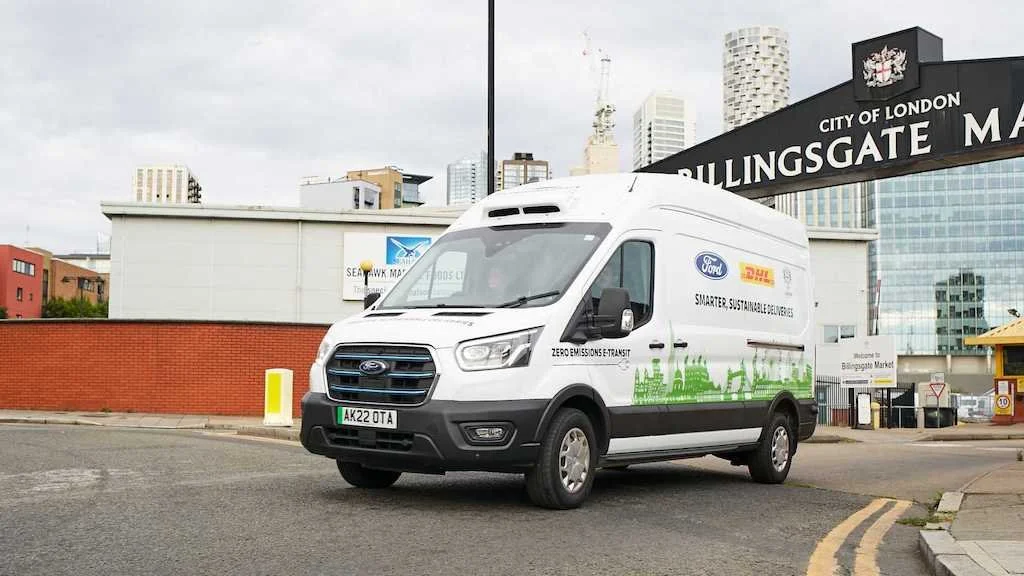Billingsgate Market shared delivery trial is good for customers, traders and the environment
Ford is running a trial with traders at London’s Billingsgate Market giving them access to a shared fleet of connected all-electric E-Transit vans equipped with advanced delivery routing using DHL Supply Chain software.
Ford says that since the trial started in March, CO2 emissions associated with deliveries have dropped by more than a third and almost 950 fewer van journeys have taken place, helping to reduce air pollution and congestion.
The trial is part of the City of London Corporation’s aim to reduce the environmental impact of its wholesale markets through innovation, including the planned relocation of Billingsgate, Smithfield and New Spitalfields markets to Dagenham Dock. Electric vehicle charging has been installed in the market car park.
The seven refrigerated Ford Pro vehicles are equipped with sensors that feed real-time data to support fleet managers in monitoring the efficiency, condition, and health of the vans.
And according to traders the pilot scheme is also helping to attract new customers.
Youssef Archi, Director of Ish Seafood, a stall which has been trading in Billingsgate since 2015 and supplies fishmongers in and around London says, “The delivery service is now getting better and better.” The business used to run deliveries using two vans but is no longer using its own vans.
“Before, every time we got a new customer we needed a new van, which was just more headache for us. Now, we can just focus on getting more customers.”
Mark Button, Managing Director of jellied eel and shellfish wholesaler Barney’s Billingsgate, concurs, “I don’t usually take on new customers that aren’t on my existing routes. Now, I can send the parcels via the delivery service and they arrive the same day. It’s cheaper than customers coming here and cheaper than me doing it. It can only be better for the environment that we use fewer vans. I would use a multi-drop-off service.”
Chris Hayward, Policy Chairman at the City of London Corporation adds, “Our historic wholesale markets have been serving Londoners for hundreds of years. But to face up to the climate challenge, we cannot continue with business as usual.
“This pilot has proved that using different modes of delivery not only reduces emissions and traffic but can also offer a better service to both our market traders and their customers.”


